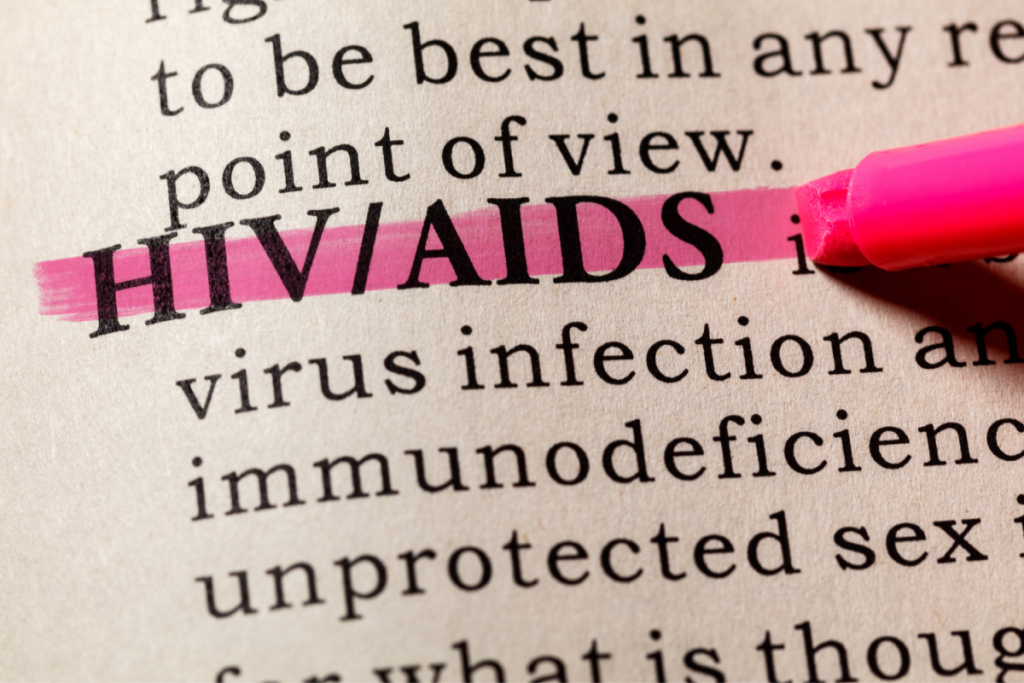
HIV / AIDS – What you NEED to Know
With the prevalence of 9,129 cases of HIV by the end of 2021, the incidence of 171 new cases among Singaporean residents was reported between January and October 2022 by the Ministry of Health on Thursday (Dec 01), 2022. A need for further awareness and screening is the need of the hour.
What is HIV / AIDS?
HIV (Human Immunodeficiency Virus) is the virus that weakens the natural defences of the body by targeting the CD4+ T-Cells (a type of white blood cell) responsible for the immunity while utilising the dying cell as a hotbed of its replication and growth. This entire process culminates in AIDS (Acquired Immunodeficiency Syndrome), a medical condition characterised by an increased susceptibility to a host of otherwise less common infections.
It is important to recognise that it is not the virus itself that results in the syndrome but the lack of immunity it produces and the resultant infections and their complications which cause significant morbidity and mortality. These infections include tuberculosis, herpes simplex (shingles), candidiasis (fungal infection), CMV (cytomegalovirus) infection, bacterial pneumonia, and Kaposi sarcoma to name a few.
How does HIV spread?
The main causes of the spread of HIV are;
- Unprotected Sexual Intercourse – The major cause of HIV spread is unprotected intercourse with an HIV-positive person. The risk of transmission of HIV is significantly higher for receptive anal intercourse (1:100) compared to receptive vaginal intercourse (1:1000) and insertive vaginal intercourse (1:3000-1:10,000).
- Needle Stick Injury – Injection drug use with sharing of contaminated needles or accidental pricks of infected Needles and sharps is another major cause of the spread of HIV (1:300). This is a predominant risk for IV drug abusers and healthcare providers.
- From Infected mother to baby – Vertical transmission from mother to baby significantly contributes to the spread of HIV.
- Oral Sex – Receptive fellatio with ejaculation is also a major cause. The statistics about insertive oral sex, however, are unclear.
- Blood Transfusion – Extremely rare since the advent of screening practices prior to transfusion.
- Tattooing and Body Piercing – Rarely occurs when done so without proper hygiene (when instruments have infected blood on them).
HIV generally does not spread by;
- Through saliva (kissing), tears and sweat.
- Sharing toilets.
- Sexual activities not involving the transfer of body fluids (touching. etc).
- Sharing utensils.
- Coughing or sneezing.
How can HIV / AIDS be prevented?
In light of broad clinical literature and the guidelines provided by the Ministry of Health, Singapore, the following measures are deemed most effective to help prevent HIV and AIDS:
- Protected sexual intercourse using physical barriers such as effective use of Condoms.
- Regular screening for high-risk groups (those engaged in casual sex or with commercial sex workers).
- Screening tests for spouses before engaging in unprotected sex.
- Remaining faithful to one’s partner.
- Avoid sharing needles for IV drug injections.
- Pre-Exposure prophylaxis with medications (anti-retroviral therapy) for engaging in sexual contact with an infected partner.
- Post-Exposure prophylaxis after a possible HIV exposure. This must be started within 72 hours of the exposure after consulting with your healthcare provider.
- HIV in pregnancy – Mandatory screening in pregnancy. Start HIV treatment as soon as possible (even in the first trimester) if tested positive and continue throughout pregnancy to decrease the viral load. This should be followed up by intrapartum (during parturition) injection of anti-retroviral therapy to prevent transmission from the mother to the baby.
- Prevention for the baby of an HIV-positive mother – The baby should also receive zidovudine (HIV medication) during delivery and 6 weeks following delivery to prevent transmission.
- Elective Caesarean delivery for HIV-positive women having high viral load (>1000/µl) at the time of delivery.
- HIV screening at home (confidential) – Anonymous HIV testing at home has recently been made available to the public by certain healthcare providers.
What if I test positive?
If you test positive for HIV, you will be put on antiretroviral medications by your healthcare provider as early as possible provided the indications for antiretroviral therapy which are;
- A CD4+ T-Cell count below 500/µl.
- A high viral load. (>100,000/µl).
- Presence of opportunistic or superadded infections.
Viral resistance testing (genotyping) will be performed before starting antiretroviral therapy. The response to therapy is mostly measured by CD4+ cell count and Viral load (PCR-RNA level)
It is important to note that the early detection of HIV (mostly a result of self-indicated screening) leads to a better prognosis since starting antiretroviral therapy (HIV medication) at an early stage has significant success in reducing viral loads and the life expectancy of an HIV -positive person with the viral load as low as negligible matches that of an HIV-negative person.
References
For Incidence and Prevalence in Singapore:
For Medical knowledge, Mechanism, Treatment and prevention:
- Harrison’s Principles of Internal Medicine, 20th Edition
- Davidson’s Principles and Practice of Internal Medicine, 24th Edition
- Mastering the Boards by Conrad Fischer, 4th
- https://www.cdc.gov/

